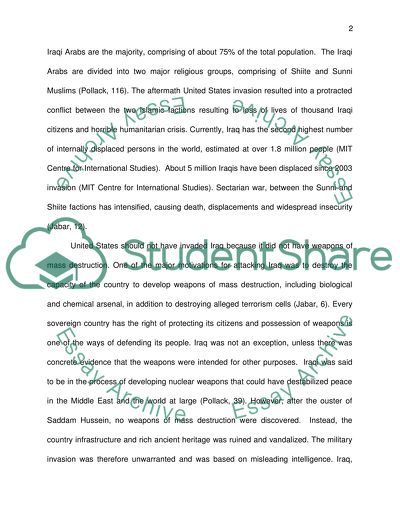Cite this document
(“Iraq's Future Essay Example | Topics and Well Written Essays - 750 words”, n.d.)
Iraq's Future Essay Example | Topics and Well Written Essays - 750 words. Retrieved from https://studentshare.org/english/1448426-iraqi-people
Iraq's Future Essay Example | Topics and Well Written Essays - 750 words. Retrieved from https://studentshare.org/english/1448426-iraqi-people
(Iraq'S Future Essay Example | Topics and Well Written Essays - 750 Words)
Iraq'S Future Essay Example | Topics and Well Written Essays - 750 Words. https://studentshare.org/english/1448426-iraqi-people.
Iraq'S Future Essay Example | Topics and Well Written Essays - 750 Words. https://studentshare.org/english/1448426-iraqi-people.
“Iraq'S Future Essay Example | Topics and Well Written Essays - 750 Words”, n.d. https://studentshare.org/english/1448426-iraqi-people.


